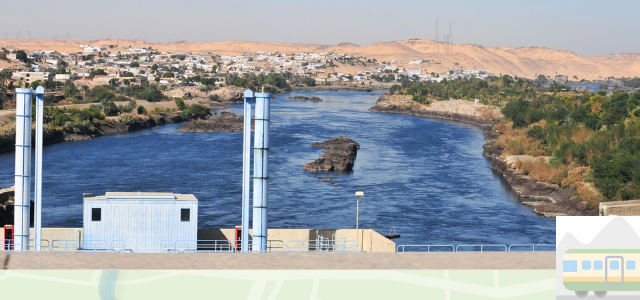Please note: Prior to this online session, participants are encouraged to register to the Massive Open Online Course (MOOC) on Governance for Transboundary Freshwater Security, and to take a look at Module 3: International Water Law, and Module 6: Finance for Transboundary Water Security, particularly lecture 6c – Public Financing for Transboundary Projects and 6d – Private Financing for Transboundary Projects. Suggested reading material is listed in the right-hand column.
Water is fundamental for development, with transboundary waters acting as a natural connection between states. However, when one state seeks to develop waters it shares with another state, some impact is inevitable. The purpose of this session is to explore the different ways in which states can develop infrastructure on their transboundary waters, and to exchange experience, best practice and challenges faced regarding transboundary water development.
Questions will be collected in advance (through the MOOC platform) and during the 1.5-hour-long session. Panellists will provide brief presentations and then the floor is open to questions in breakout rooms, which offers an opportunity to engage directly with regional experts.
WHEN: Tuesday, 18 May, at 05:00 (Washington DC), 06:00 (Rio de Janeiro), 10:00 (London), 11:00 (Stockholm), 11:00 (Johannesburg), 17:00 (Beijing)
WHAT: The session will feature speakers with different experiences to share, discussing the following topics:
- What are the rules of international law that apply to transboundary water infrastructure projects?
- How does international investment law and international water law interface in projects related to transboundary water infrastructure?
- What are the duties and rights of States regarding infrastructure development projects on their shared transboundary waters? In this context, what rules of international law apply regarding prior notification and exchange of information, and how does this work in practice?
- How does international water law deal with the potential adverse impacts resulting from infrastructure projects on transboundary watercourses?
HOW: Registration is required, please use this link.
WHO: The speakers are (please note additions/changes may still occur):
- Dr. Yumiko Yasuda (Event moderator), Senior Network & Transboundary Water Cooperation Specialist, Global Water Partnership
- Professor Patricia Wouters (Co-chair), Director, International Water Law Academy, Wuhan University
- Dr. David J Devlaeminck (Co-chair), Lecturer, School of Law, Chongqing University
- Dr. Ana Maria Daza-Clark, Lecturer, School of Law, Edinburgh University
- Mr. Phera Ramoeli, Executive Secretary, Permanent Okavango River Basin Water Commission (OKACOM)
- Dr. Pech Sokhem, Affiliate Member of International Water Law Academy, Wuhan University; Senior Water and Climate Change Consultant (Canada).
Background: The MOOC on Governance for Transboundary Freshwater Security opened in August 2020 by GWP, GEF IW:Learn, and Partners. The aim is to bring together countries that share freshwater resources – giving them the skills to cooperate so that the shared resource is managed sustainably for the benefit of each country’s population. The self-paced MOOC is available on the SDG Academy platform - it is free and open to everyone - but especially designed for professionals who manage and make decisions about transboundary waters.
Photo: Aswan Lake and Dam for hydroelectric power in Egypt, by Mostphotos.com/Felix Lipov

